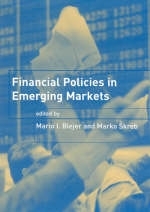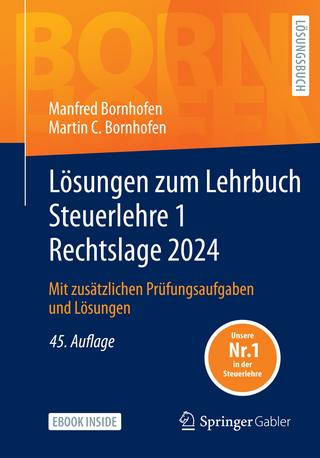
Financial Policies in Emerging Markets
Seiten
2002
MIT Press (Verlag)
978-0-262-02525-6 (ISBN)
MIT Press (Verlag)
978-0-262-02525-6 (ISBN)
- Keine Verlagsinformationen verfügbar
- Artikel merken
An overview of the financial vulnerability of emerging market economies and how the impact of exchange rate regimes affects this vulnerability.
The 1994-1995 Mexican crisis was the first in a succession of financial crises to hit emerging markets in Thailand, Indonesia, Malaysia, South Korea, Russia, Brazil, Argentina, and Turkey. In almost all these cases, problems in the banking sector played a key role. Any analysis of recent developments in emerging market economies must consider two questions: What is the degree of financial vulnerability in emerging market economies, and what, if any, is the connection between the exchange rate regime and financial vulnerability?This book furthers understanding of the impact of financial policies on emerging market economies. Following an introduction by the editors, the book contains two main sections. The first presents theoretical and empirical evidence on the relation between financial policy and financial vulnerability. The second considers financial policy in central and eastern Europe in terms of the euro and the European Monetary Union.
Although there is no clear-cut answer to which exchange rate regime works best, the book concludes that the financial vulnerability of emerging market economies suggests the advisability of greater caution in financial system liberalization and management.
The 1994-1995 Mexican crisis was the first in a succession of financial crises to hit emerging markets in Thailand, Indonesia, Malaysia, South Korea, Russia, Brazil, Argentina, and Turkey. In almost all these cases, problems in the banking sector played a key role. Any analysis of recent developments in emerging market economies must consider two questions: What is the degree of financial vulnerability in emerging market economies, and what, if any, is the connection between the exchange rate regime and financial vulnerability?This book furthers understanding of the impact of financial policies on emerging market economies. Following an introduction by the editors, the book contains two main sections. The first presents theoretical and empirical evidence on the relation between financial policy and financial vulnerability. The second considers financial policy in central and eastern Europe in terms of the euro and the European Monetary Union.
Although there is no clear-cut answer to which exchange rate regime works best, the book concludes that the financial vulnerability of emerging market economies suggests the advisability of greater caution in financial system liberalization and management.
Mario I. Blejer is Vice President at the Central Bank of Argentina and a former Senior Advisor at the International Monetary Fund. Marko Skreb, former Governor at the Croatian National Bank, is Advisor to the Governor of the Bank of Albania.
| Erscheint lt. Verlag | 1.10.2002 |
|---|---|
| Zusatzinfo | 63 illus. |
| Verlagsort | Cambridge, Mass. |
| Sprache | englisch |
| Maße | 152 x 229 mm |
| Gewicht | 513 g |
| Themenwelt | Wirtschaft ► Betriebswirtschaft / Management ► Finanzierung |
| Wirtschaft ► Volkswirtschaftslehre | |
| ISBN-10 | 0-262-02525-6 / 0262025256 |
| ISBN-13 | 978-0-262-02525-6 / 9780262025256 |
| Zustand | Neuware |
| Haben Sie eine Frage zum Produkt? |
Mehr entdecken
aus dem Bereich
aus dem Bereich
Allgemeines Steuerrecht, Abgabenordnung, Umsatzsteuer
Buch (2024)
Springer Gabler (Verlag)
CHF 39,20
theoretische Basis und praktische Anwendung
Buch | Softcover (2023)
De Gruyter Oldenbourg (Verlag)
CHF 55,90


